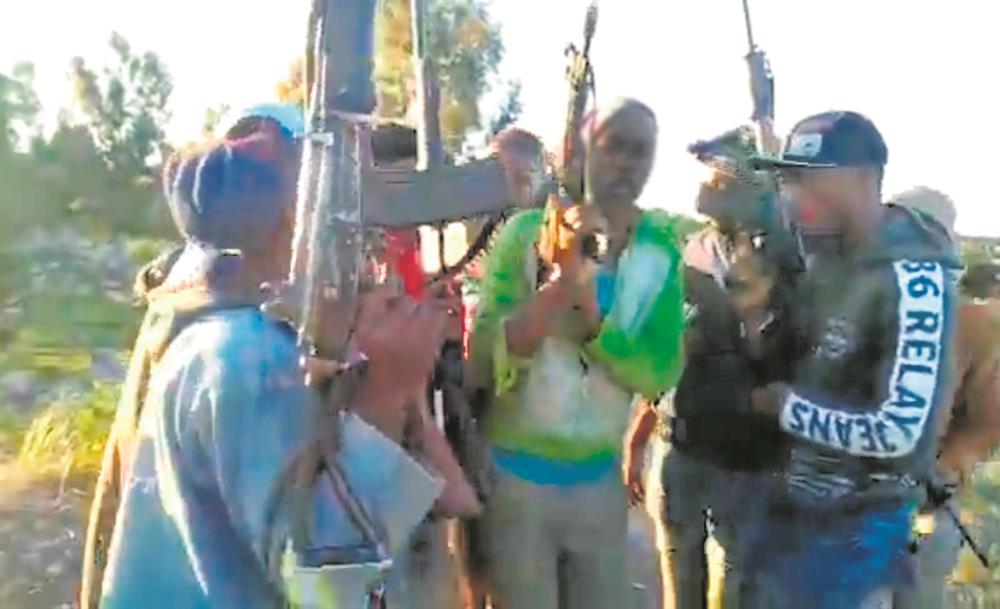Update
Psira rejects 'alarmist' claims
GEORGE NEWS - The Private Security Industry Regulatory Authority (Psira) strongly rejects the claims that the proposed new regulations will impede security firms' operations and cost the country jobs.
In an interview with Newzroom Afrika on 8 April, its CEO, Manabela Chauke, insisted none of the more than 600 000 registered security officers will lose their jobs and no security companies will close as a result of the amendments.
This as he said Psira was not restricting the lawful use of firearms or disarming security guards, but merely needed to know where and for what ends all firearms will be used.
Chauke explained the stricter controls were meant to weed out rogue elements within the private security industry, such as security companies used as a front to exploit the system in a ploy to gain access to firearms that are then used in the commission of organised crime.
Suspected Cape Town crime boss Mark Lifman, who was assassinated at the Garden Route Mall on November 3, allegedly competed with rival underworld figure Nafiz Modack to gain control of the private security industry, specifically around Cape Town's night life.
In their respective alleged protection rackets, they would force their services on businesses and demand payment. Incidentally, the two men arrested in connection with Lifman's death are also said to have had ties to a Cape Town security company, PPA.
 Manabela Chauke Photo: Sourced/Facebook
Manabela Chauke Photo: Sourced/Facebook
Chauke said similar proposed amendments were first published in 2003, but not acted on, and since then the situation has escalated. He used the July 2021 looting in Phoenix as an example. "It is alleged that a private security company was responsible for most of the deaths there," Chauke said.
This while other commentators have lauded private security companies' key role in putting a stop to the violence in KZN and Gauteng when the police was largely absent.
In a press statement released on 11 April, Psira explained the proposed restriction of the use of firearms in public spaces such as malls, churches and residential complexes.
The purpose, it said, was to only allow security officers who render services that necessitate the carrying of firearms in public, such as armed response and asset-in-transit, to carry firearms in these places.
Security guards are civilians. Therefore, they too are obligated under Section 84 of the Firearms Control Act 60 of 2000 to conceal their firearms. However, bodyguards are frequently seen openly carrying high-calibre guns in public spaces such as restaurants, churches, malls and even residential estates.
 Ian Cameron. Photo: Sourced/Facebook
Ian Cameron. Photo: Sourced/Facebook
The empire strikes back
In the meantime, the DA's spokesperson on the police, Ian Cameron, launched a national petition to oppose what he terms 'dangerous private security disarmament regulations'. In a statement released on 13 April, Cameron said the draft regulations would severely restrict security companies' ability to operate effectively by limiting access to essential tools such as tasers and other less lethal options, and even certain firearms.
"The regulations essentially mean criminals can rob jewellery stores with pocket knives while zama zamas with AK-47s would need to be fought off with small sidearms like 9mm pistols," Cameron said.
He added the regulations would likely also threaten short-term insurance cover as security services could be arbitrarily suspended overnight.
Cameron highlighted the vital role private security played in supporting the police, especially in the face of rising crime and stretched law enforcement resources. Security officers outnumber SAPS officers three to one, which is why communities are said to rely more on private security firms than the police.
 Some zama zamas armed with high-powered rifles. Photo: Video screenshot/Blue Hawk Tactical on X
Some zama zamas armed with high-powered rifles. Photo: Video screenshot/Blue Hawk Tactical on X
"The handful of rogue elements in the security industry that take part in extortion and other crimes can be policed and convicted with existing regulations and legislation," he added.
Damian Enslin of the SA Gun Owners Association agreed. "These proposed regulations will be the death of the security industry," he told Newzroom Afrika.
He said rather than going after soft targets with more laws and regulations that do not tackle the actual problem, the government needs to enable specialised police units, detectives and crime intelligence to tackle organised crime head-on.
He said the police already had the Firearms Control Act to regulate firearms, but they were underresourced to effectively address organised crime.
He said the organised criminals who have infiltrated the private security industry would not adhere to more regulations - only law-abiding citizens and companies will.
Previous articles:
- Regulasies sal sekuriteitsbedryf lamlê - wyd en syd verwerp
- Private security in Prisa’s line of fire
- PSiRA rejects claims that proposed regulations will impede security firms’ operations
‘We bring you the latest Garden Route, Hessequa, Karoo news’
















